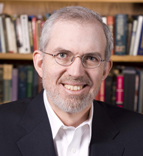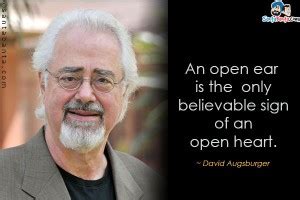A Quote by Charles Spurgeon
Prayer is not a hard requirement - it is the natural duty of a creature to its creator, the simplest homage that human need can pay to divine liberality.
Related Quotes
America's egalitarian mandate reflects the liberality of the creator, and thus countermands, by divine witness, all feudal and aristocratic structures. It also parallels the Jewish concept of repair the world, or Tikkun ha'olam, which holds that the human spirit is in partnership with God to help finish the work of creation.
An essential virtue is humility. ... The principle of humility and prayer leads one to feel a need of divine guidance. Self-reliance is a virtue, but with it should go a consciousness of the need of superior help-a consciousness that as you walk firmly in the pathway of duty, there is a possibility of your making a misstep; and with that consciousness is a prayer, a pleading that God will inspire you to avoid that false step
To admit the existence of a need in God is to admit incompleteness in the divine Being. Need is a creature-word and cannot be spoken of the Creator. God has a voluntary relationg to everything He has made, but He has no Necessary relation to anything outside of Himself. His interest in His creatures arises from His sovereign good pleasure, not from any need those creatures can supply nor from any completeness they can dring to Him who is complete in himself.
The divine wisdom which requires a division of labor has sown different abilities and tendencies in human nature and has enabled human beings to carry out the duty of establishing sciences and developing technology. The fulfillment of this duty is obligatory upon humanity as a whole, though not on every individual.
Ontologically, chocolate raises profoundly disturbing questions: Does not chocolate offer natural revelation of the goodness of the Creator just as chilies disclose a divine sense of humor? Is the human born with an innate longing for chocolate? Does the notion of chocolate preclude the concept of free will?

































